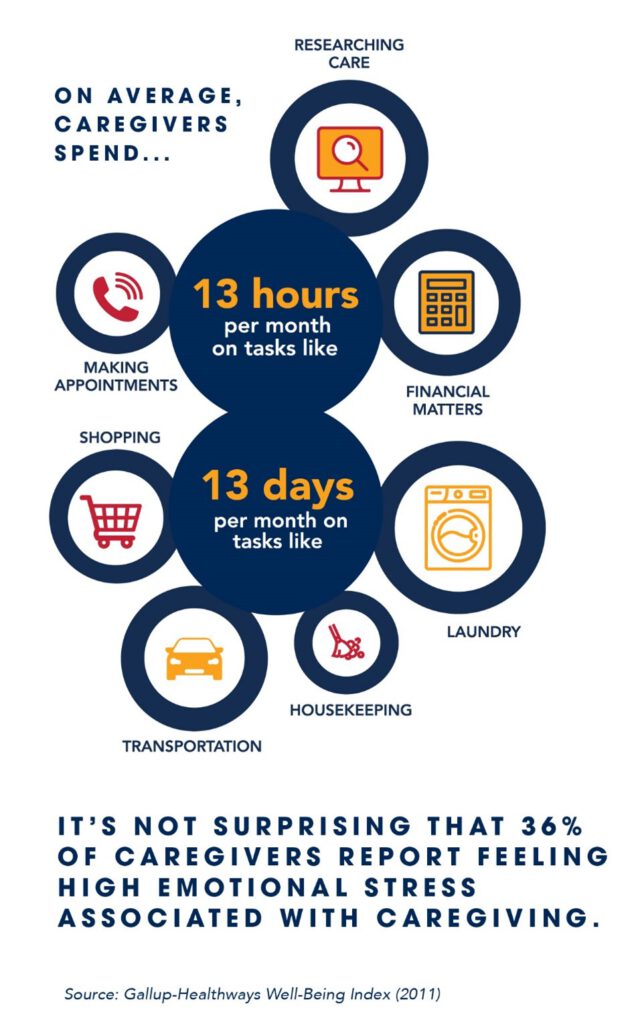Time is Precious for Family and Friend Caregivers—How Care Coaching Can Help
Many family or friend caregivers who provide care for individuals with a disability, chronic condition or dementia don’t realize just how many hours they invest in tasks associated with caregiving that are outside the realm of “Activities of Daily Living.”
When you add it up, caregivers can spend an average of 13 days per month on basic household chores and transportation, and an average of 13 hours a month on finances, medical bills, appointments and research on their loved one’s disease and treatments, according to the 2011 Gallup-Healthways Well-Being Index.

Equally surprising is the number of caregivers who help their loved one manage their health care, including communications and relationships with medical professionals. According to the survey, over 70 percent of caregivers monitor their loved one’s medical care, and 65 percent take a lead in communicating with medical professionals on their loved one’s behalf, according to the National Alliance for Caregiving and AARP Caregiving in the U.S. 2020 report. Over half of caregivers also devote time to advocating on their loved one’s behalf to providers, services and agencies.
When you consider that 60 percent of family/friend caregivers are employed outside the home, the time drain on daily life can be extraordinary, leading to stress, strain in family relationships and unmet needs for both the caregiver and the older adult needing assistance.
That’s why Benjamin Rose Institute on Aging developed BRI Care Consultation™. It’s an evidence-based care-coaching program specifically designed to work with both the family or friend caregiver and the person with a chronic condition to identify ways to better manage ongoing care. Use of this program has been shown to decrease stress, strain and unmet needs.
The Action Plan makes the difference
In this program, trained Care Consultants work with the caregiver and the person with a chronic condition to identify their main problems and concerns, and then create realistic Action Steps toward finding solutions to these issues. Action Steps focus on identifying helpful resources that provide direct assistance and much-needed information, including how to mobilize other family members and friends to participate in care in helpful ways. Quality information and help from family, friends, and professionals can reduce time-demands and feelings of isolation for the primary caregiver.
The result? Multiple research studies have shown marked decreases in unmet needs for the caregiver, as well as reduced stress and strain in the caregiving relationship.
Learn more about BRI Care Consultation. Or contact us at bricc@benrose.org for more details.